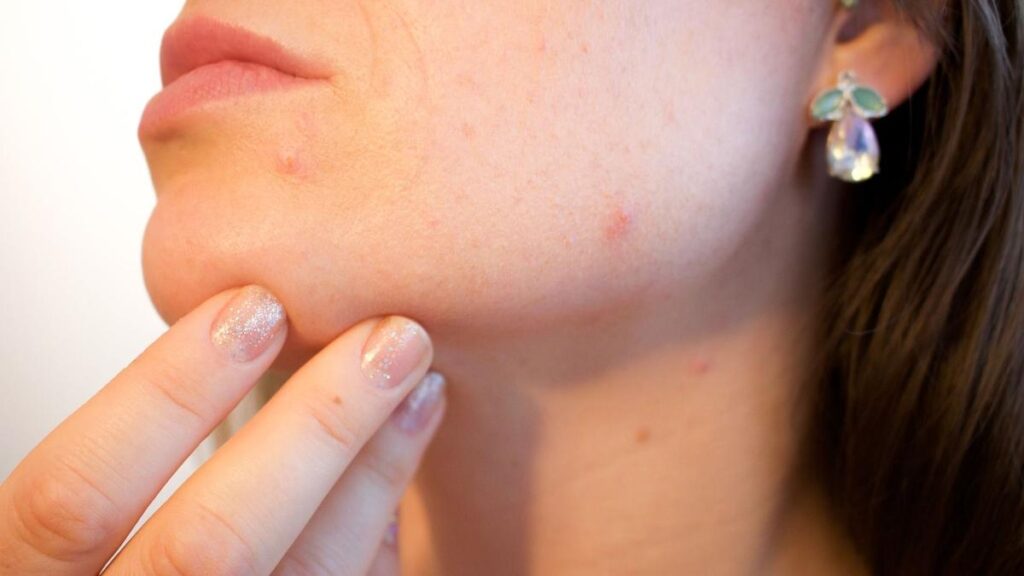Acne is one of the most common of skin conditions, affecting millions of people worldwide. Over the years, benzoyl peroxide (BPO) has been a trusted ingredient in acne treatment, valued for its antibacterial properties and ability to reduce inflammation. However, recent concerns regarding benzene contamination in certain BPO-based acne products have raised questions about their safety.
The U.S. Food and Drug Administration (FDA), last week, issued a recall for several acne treatments after detecting in them, elevated levels of benzene, a known carcinogen. While the issue has been flagged in the U.S., it highlights broader concerns for global consumers, including those in India, where BPO-based products are widely used. Understanding the risks associated with benzene contamination, as well as the necessary precautions, is essential for ensuring safe skincare choices.
What is benzene?
Benzene is a volatile organic compound classified as a Group 1 carcinogen by the International Agency for Research on Cancer (IARC). Prolonged exposure is linked to serious health issues, including leukaemia, blood disorders, and immune system damage. In the case of acne products, benzene contamination is not an intentional ingredient but a by-product of chemical degradation. Studies suggest that under certain conditions—such as exposure to heat, sunlight, or improper formulation—benzoyl peroxide can break down, leading to the formation of benzene. Given India’s climate, where high temperatures and humidity are common, the potential for such degradation is a valid concern.
A study published in JAMA Dermatology investigated the role of product formulation in the formation of benzene within BPO products. The research highlighted that specific formulation factors, such as the inclusion of antioxidants and the method of processing (hot vs. cold), significantly influence benzene levels. Notably, leave-on BPO products generally exhibited lower benzene concentrations compared to wash-off products.
Rochelle Monteiro, professor of dermatology, Father Muller Medical College, Mangalore and member of the Acne Special Interest Group (SIG), Indian Association of Dermatologists, Venereologists and Leprologists (IADVL)Centre, explains the risks: “Benzoyl peroxide is generally considered safe when used correctly, but the presence of benzene raises a red flag. Heat and improper storage conditions can accelerate the degradation process, increasing the risk of contamination. Patients using these products must be mindful of how they store them.” She emphasizes that Indian consumers must be cautious, as regulatory oversight in over-the-counter skincare products is still evolving.

The Indian scenario
Several BPO-based acne products have been implicated in recent recalls, including La Roche-Posay Effaclar Duo, Proactiv Emergency Blemish Relief, and Walgreens Acne Control Cleanser. While these brands may not be directly available in India, similar formulations are sold under different names, making it crucial for consumers to stay informed. In India, BPO-based acne treatments are widely available under various brand names. Improper storage conditions, such as exposure to heat and light, can accelerate the degradation process, increasing the likelihood of benzene formation. Many people rely on international e-commerce platforms or purchase imported skincare products without verifying batch details. “Consumers often assume that if a product is widely used abroad, it is automatically safe. But regulatory standards differ, and recalls in one country don’t always translate to bans elsewhere,” warns Dr. Monteiro.
Given the potential risks, choosing safe and stable formulations of benzoyl peroxide is essential. Dermatologists recommend looking for dermatologist-tested, pharmaceutical-grade BPO products rather than generic formulations from unknown brands. Checking for certifications from CDSCO (Central Drugs Standard Control Organization) or BIS (Bureau of Indian Standards) can help ensure compliance with safety regulations.
Alternative acne treatments and precautions
If consumers are concerned about the safety of BPO, alternative acne treatments may be worth considering. Dr. Monteiro suggests options such as adapalene, salicylic acid, or azelaic acid, which offer effective acne control without the risk of benzene contamination. However, she clarifies that BPO is still one of the most effective acne-fighting ingredients when used correctly. Instead of avoiding it entirely, the focus should be on choosing well-regulated products, checking for recalls, and following safe storage practices.
For those who continue using BPO-based treatments, precautionary steps can help minimise potential risks. Always check product packaging for manufacturing and expiry dates, and avoid using products that appear discoloured, dried out, or have an unusual smell, as these could be signs of degradation. When purchasing acne products, buy from reputable pharmacies or directly from official brand websites rather than unauthorised third-party sellers. If a product has been stored in hot or humid conditions, replacing it periodically is a wise choice. To mitigate these risks, always consult dermatologists for personalized advice on acne treatment options and safe product usage.
The concerns surrounding benzene contamination are a reminder that not all skincare products are created equal, and quality matters as much as efficacy. Acne treatment is a long-term process, and selecting safe, well-researched products under the guidance of a qualified dermatologist is crucial for maintaining skin health without compromising overall well-being. With greater awareness and a cautious approach, consumers can confidently use acne treatments, knowing they are making informed and responsible choices.
(Dr. Monisha Madhumita is a consultant dermatologist at Saveetha Medical College, Chennai and member of the International Alliance for Global Health Dermatology, London, UK. [email protected] )
Published – March 21, 2025 12:48 pm IST

